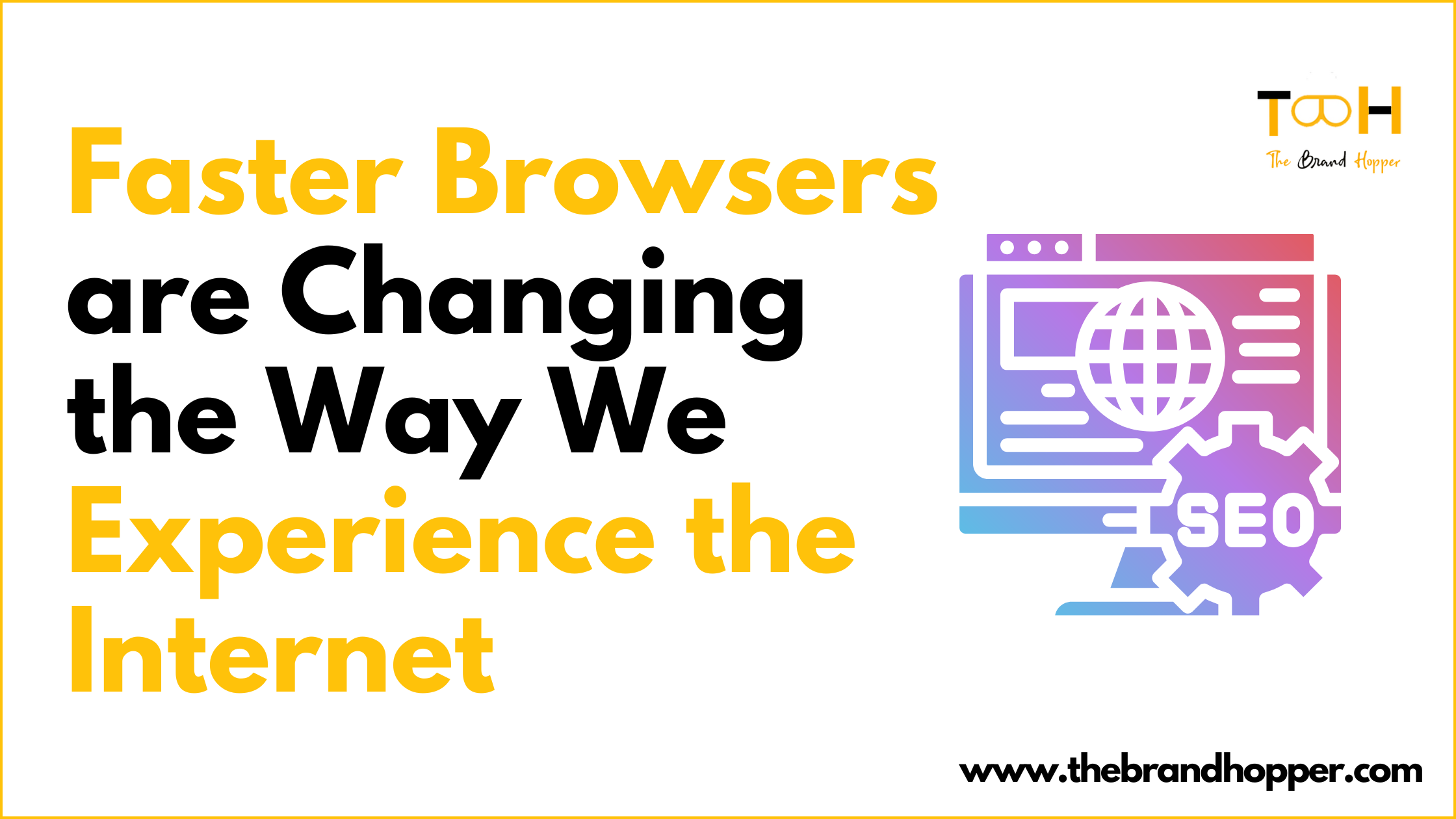The internet has become an integral part of our daily lives, serving as the backbone of communication, entertainment, and productivity. With the increasing reliance on web-based platforms, the demand for faster browsers has skyrocketed. Modern browsers are no longer just tools to access the internet; they are dynamic platforms designed to enhance user experience, improve accessibility, and adapt to emerging technologies. In this article, we explore how faster browsers are revolutionizing the way we experience the internet and what this means for the future of web interactions.
The Importance of Browser Speed
Speed is one of the most critical factors influencing user satisfaction with browsers. Research shows that users expect web pages to load in under two seconds, with every additional second resulting in a significant drop in engagement. Faster browsers reduce loading times, enabling users to interact with content almost instantaneously. This has profound implications for:
- Productivity: Professionals working on time-sensitive tasks benefit greatly from quicker access to tools and resources.
- E-commerce: Faster browsing ensures smoother shopping experiences, increasing conversion rates.
- Content Consumption: Users can stream videos, browse articles, and play online games without interruptions, fostering greater engagement. To ensure secure browsing alongside speed, many users choose to buy VPN services, which can enhance privacy while browsing faster.
How Browser Speed Enhances User Experience
1. Seamless Streaming and Media Consumption
The rise of streaming platforms like YouTube, Netflix, and Spotify has heightened the need for browsers that can handle large amounts of data efficiently. Faster browsers utilize advanced caching techniques, adaptive streaming, and hardware acceleration to deliver high-quality content without buffering.
For instance:
- Adaptive Bitrate Streaming: Modern browsers automatically adjust video quality based on the user’s internet speed, ensuring uninterrupted playback.
- WebAssembly Integration: This technology allows browsers to execute complex applications like 3D games or video editing software directly, eliminating the need for separate downloads.
2. Enhanced Online Gaming
Online gaming has evolved from simple 2D games to complex, graphics-intensive multiplayer experiences. Faster browsers support technologies like WebGL and WebRTC, enabling real-time rendering and low-latency communication. Gamers can now enjoy console-like experiences directly in their browsers, expanding the reach of browser-based gaming.
Accessibility: Bridging the Digital Divide
Faster browsers are playing a crucial role in making the internet more accessible for users in regions with limited bandwidth. By employing data compression techniques and optimizing resource allocation, these browsers ensure:
- Faster Load Times: Even on slower connections, websites load quicker, reducing frustration for users.
- Offline Access: Features like Progressive Web Apps (PWAs) allow users to interact with content even without an active internet connection.
- Mobile Optimization: Browsers on mobile devices are now optimized to use less data and power, making them ideal for users in developing countries.
The Role of Speed in SEO and Web Development
Search engine optimization (SEO) has become a cornerstone of digital marketing, and browser speed is a key factor in determining a website’s search ranking. Google’s Core Web Vitals emphasize the importance of speed, interactivity, and visual stability in web development. Faster browsers contribute to:
- Improved Page Load Times: Websites optimized for fast browsers rank higher in search engine results, driving more organic traffic.
- Better User Retention: Speedier websites reduce bounce rates and encourage users to explore more pages.
- Optimized Web Design: Developers are now focusing on lightweight, responsive designs that leverage browser capabilities for maximum performance.
Emerging Technologies Driving Browser Speed
Several cutting-edge technologies are shaping the future of browser performance. These innovations are not only making browsers faster but also smarter:
1. AI and Machine Learning
Artificial intelligence is being integrated into modern browsers to predict user behavior and pre-load content. For example:
- Preloading Websites: AI algorithms analyze user habits to load frequently visited sites in the background.
- Smart Tab Management: Browsers can identify inactive tabs and optimize resource allocation, improving overall speed.
2. WebAssembly (WASM)
WebAssembly allows developers to run high-performance applications directly in browsers. This technology has revolutionized industries like gaming, video editing, and CAD software by enabling complex computations at lightning speeds.
3. Edge Computing
Edge computing minimizes latency by processing data closer to the user rather than relying on distant servers. Faster browsers are leveraging edge networks to deliver real-time content, especially for applications like live streaming and online gaming.
The Future of Browsing: What to Expect
As technology continues to advance, the line between browsers and operating systems is blurring. Future browsers will likely incorporate even more features to enhance speed and usability:
1. 5G Integration
The rollout of 5G networks will complement faster browsers, enabling near-instantaneous access to data-heavy applications. Users can expect smoother experiences in areas like augmented reality (AR) and virtual reality (VR).
2. Quantum Computing
While still in its infancy, quantum computing holds the potential to revolutionize browser performance. Quantum algorithms could process complex calculations far more efficiently, making browsers exponentially faster.
3. Privacy and Security Enhancements
Faster browsers are also prioritizing user privacy and security. Features like sandboxing, encryption, and advanced tracking prevention ensure that speed does not come at the cost of safety.
Challenges and Limitations
Despite the advancements, faster browsers face certain challenges:
- Compatibility Issues: Not all websites are optimized for modern browsers, leading to inconsistencies in performance.
- Resource Consumption: Faster browsers often require more system resources, which can be a drawback for users with older devices.
- Digital Divide: While faster browsers enhance accessibility, users in regions with poor infrastructure may still struggle to fully benefit.
Conclusion
Faster browsers are undeniably changing the way we experience the internet. By improving speed, enhancing user experience, and leveraging emerging technologies, they are paving the way for a more connected and efficient digital world. As these innovations continue to evolve, the boundaries of what can be achieved online will expand, creating opportunities for individuals, businesses, and developers alike.
The future of the internet is bright, and faster browsers are at the forefront of this transformation. Whether you’re streaming your favorite show, completing a work project, or exploring new online experiences, the speed and capabilities of modern browsers ensure that the journey is as smooth as the destination.
To read more content like this, explore The Brand Hopper
Subscribe to our newsletter




